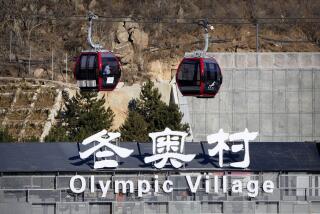Village Exemplifies Chinese Reform
- Share via
DA QIU VILLAGE, China — When Deng Xiaoping began preaching capitalist-style reform this year, nobody cheered louder than the residents of Da Qiu, China’s richest village.
“We put our hands together and gave him a big round of applause,” grinned Li Fengzhuang, whose village has turned its parched wheat fields into industrial assets worth close to $1 billion. “It shows we’ve been right all along.”
The village is the last stop on a potholed road near Tianjin, the port that serves Beijing.
It is a dramatic example of the kind of entrepreneurial energy that Deng, China’s paramount leader, is trying to unleash with his campaign to speed up economic reform.
In just a few years, Da Qiu’s 4,000 or so residents have transformed an untidy cluster of huts into a neat industrial park surrounded by luxury villas, elegant apartments and landscaped gardens.
They have created a Californian lifestyle in a Chinese dust bowl.
“We don’t believe in egalitarianism here,” said Li, the deputy general manager of Da Qiu Village Enterprise Corp., the new capitalist face for what is still technically a socialist collective.
His parent’s luxury villa proves the point.
Now in their early 70s, the couple live alone in the five-bedroomed mansion that boasts five color television sets, three VCRs, a Japanese hi-fi system and cordless telephones in the bathrooms.
Everything is paid for by the village, right down to the leather armchairs and the wooden mahjong table.
Newspapers have approvingly dubbed Da Qiu China’s richest village, but it has not been promoted as a socialist model.
More to Read
Sign up for Essential California
The most important California stories and recommendations in your inbox every morning.
You may occasionally receive promotional content from the Los Angeles Times.













